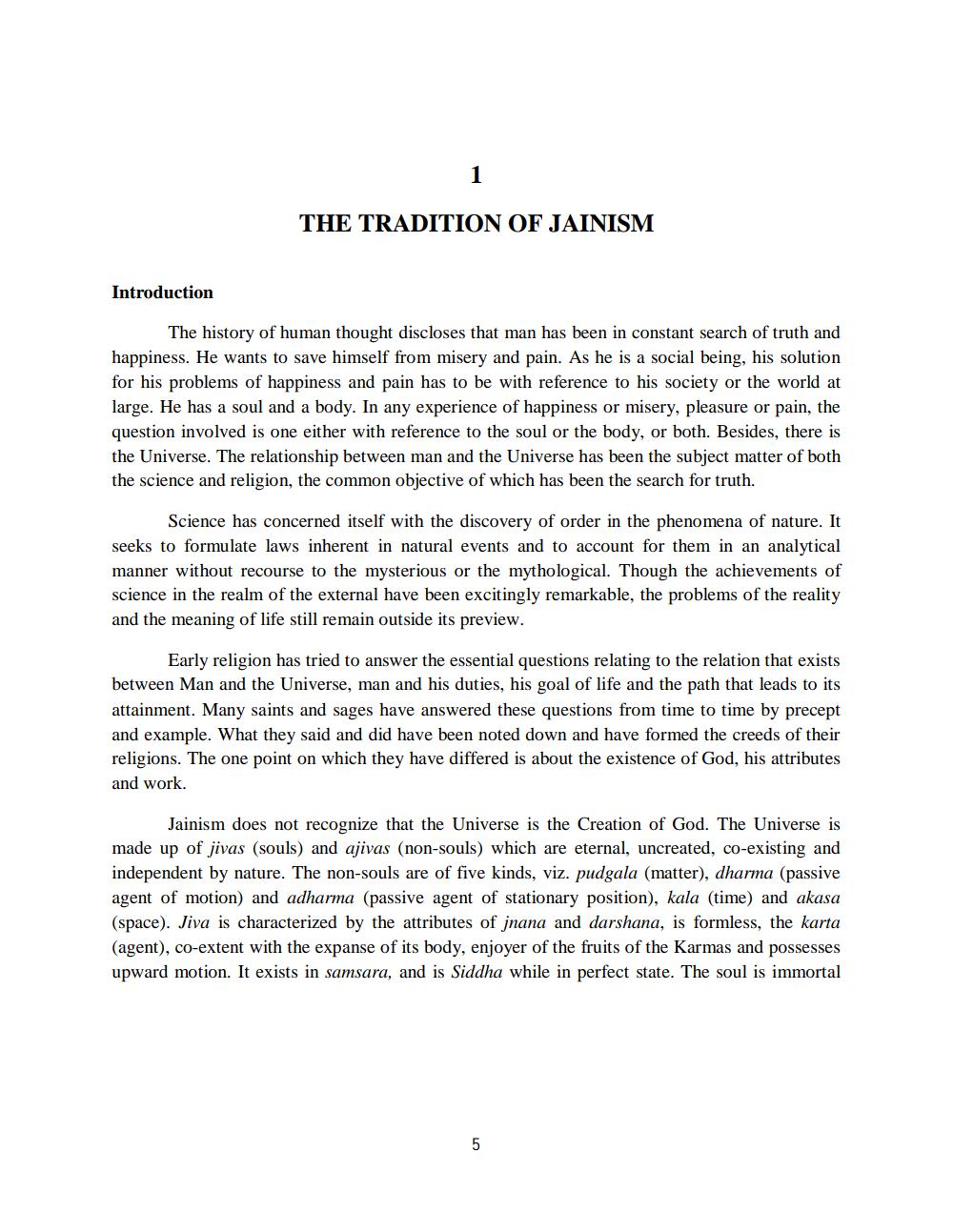Book Title: Basic Principles Of Jainism Author(s): Narayan Lal Kachhara Publisher: Narayan Lal Kachhara View full book textPage 5
________________ 1 THE TRADITION OF JAINISM Introduction The history of human thought discloses that man has been in constant search of truth and happiness. He wants to save himself from misery and pain. As he is a social being, his solution for his problems of happiness and pain has to be with reference to his society or the world at large. He has a soul and a body. In any experience of happiness or misery, pleasure or pain, the question involved is one either with reference to the soul or the body, or both. Besides, there is the Universe. The relationship between man and the Universe has been the subject matter of both the science and religion, the common objective of which has been the search for truth. Science has concerned itself with the discovery of order in the phenomena of nature. It seeks to formulate laws inherent in natural events and to account for them in an analytical manner without recourse to the mysterious or the mythological. Though the achievements of science in the realm of the external have been excitingly remarkable, the problems of the reality and the meaning of life still remain outside its preview. Early religion has tried to answer the essential questions relating to the relation that exists between Man and the Universe, man and his duties, his goal of life and the path that leads to its attainment. Many saints and sages have answered these questions from time to time by precept and example. What they said and did have been noted down and have formed the creeds of their religions. The one point on which they have differed is about the existence of God, his attributes and work. Jainism does not recognize that the Universe is the Creation of God. The Universe is made up of jivas (souls) and ajivas (non-souls) which are eternal, uncreated, co-existing and independent by nature. The non-souls are of five kinds, viz. pudgala (matter), dharma (passive agent of motion) and adharma (passive agent of stationary position), kala (time) and akasa (space). Jiva is characterized by the attributes of jnana and darshana, is formless, the karta (agent), co-extent with the expanse of its body, enjoyer of the fruits of the Karmas and possesses upward motion. It exists in samsara, and is Siddha while in perfect state. The soul is immortal 5Page Navigation
1 ... 3 4 5 6 7 8 9 10 11 12 13 14 15 16 17 18 19 20 21 22 23 24 25 26 27 28 29 30 31 32 33 34 35 36 37 38 39 40 41 42 43 44 45 46 47 48 49 50 51 52 ... 106
